
Why Tiered Pricing Strategy is a must for Accounting Firms (+Template Inside)
Tiered pricing gives accounting firms a flexible, confident way to price their services and raise fees without fear. Template included.
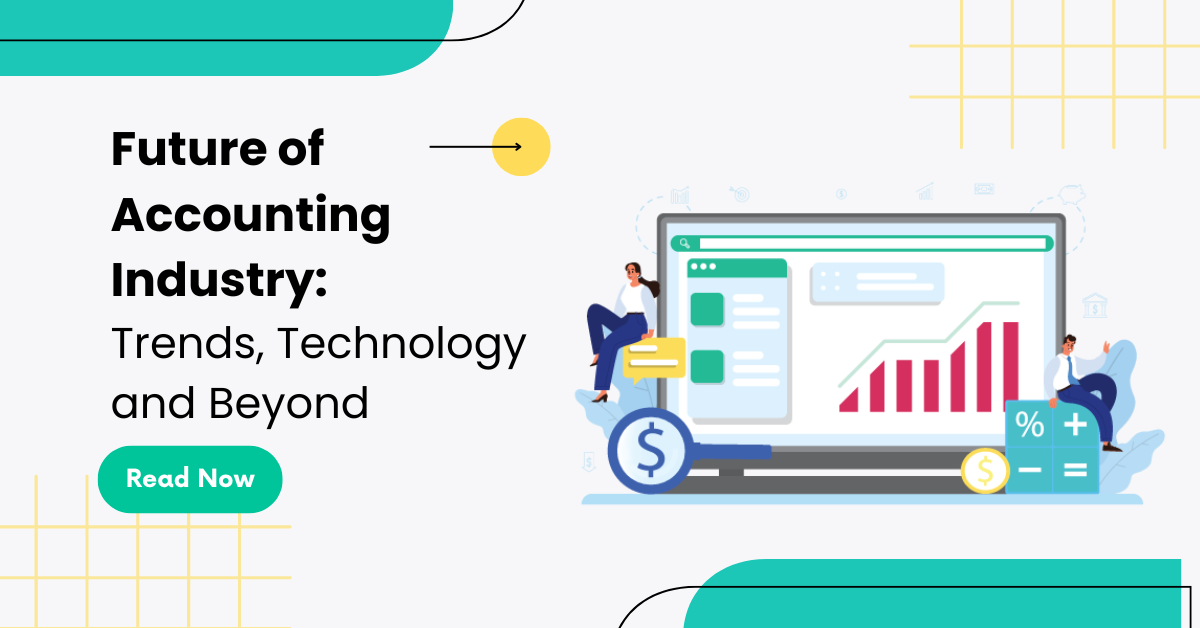
Accounting trends and technology have been evolving for years. In this blog, we’ll dive into the current state of the accounting industry as of 2024 and the future of accounting to discover what lies ahead.
The accounting world is shifting faster than ever, bringing both exciting opportunities and big challenges. Curious about what trends will shape 2024?
Welcome to the blog on the future of accounting, where we explore these rapid changes and what they mean for the industry.
Before we dive into upcoming trends and start decoding the future of accounting, it’s important to understand where the accounting industry is right now. You need to know your starting point to figure out where you’re going.
Let’s get a clear view of today’s accounting landscape and see what the future of accounting might look like.
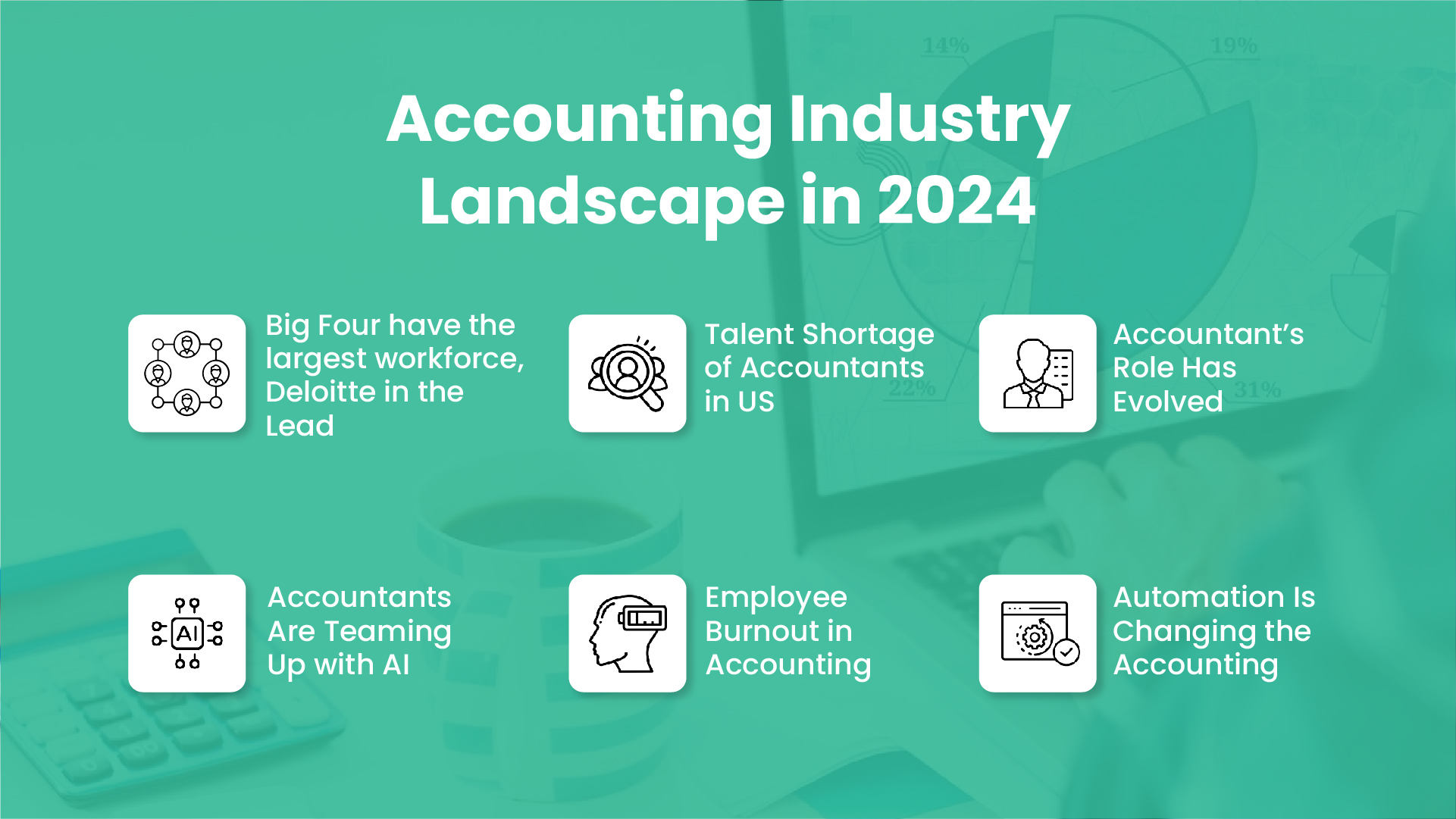
Accounting isn’t just about recording entries and presenting information anymore. Today’s accountants are key players in their companies, helping solve important business challenges and driving growth. They are seen as equals by top management, acting more like advisors than just the people who handle the finances.
Automation is reshaping the day-to-day work of accountants. Tasks like bookkeeping, reviewing receipts, and scanning invoices can now be handled quickly by software. This change lets accountants spend more time on important parts of business finance. They can now focus more on big-picture issues such as Client Service Advisory, helping with M&A, and understanding the company’s financial structure.
Related Read – Top 10 AI Accounting Software in 2024
In the initial days of AI, there was a common worry that AI might reduce the need for accountants by taking over tasks and doing them faster and more accurately. With the passage of time, Accountants have evaluated the capabilities of AI and are ready to make the best use of it in future accounting.
Consider an accountant who typically handles 30 transactions per hour and works 2,000 hours a year, totaling 60,000 transactions. With AI, if their productivity improves by 25% in 2024, they can now manage 75,000 transactions a year.
As AI technology improves and they become even more efficient, the cost per transaction drops. Lower costs lead businesses to seek more detailed financial reporting and analysis. They might even opt for real-time metrics and analytics, which were previously too expensive to consider.
This boost in productivity and cost efficiency means accountants can do more than just crunch numbers; they can provide valuable, strategic insights into every corner of a business, making their role more crucial and their work more interesting and impactful.
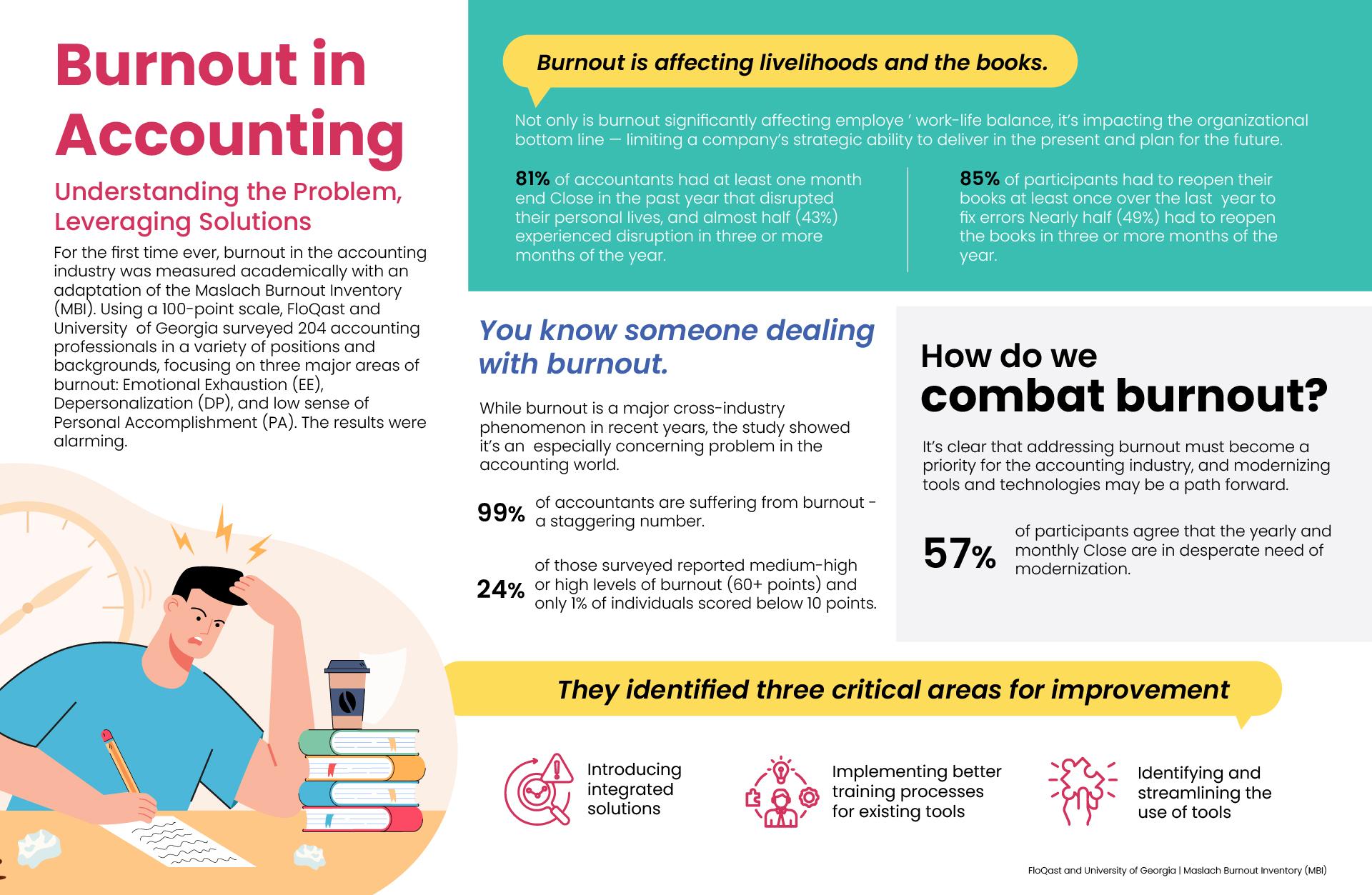
Burnout is a significant issue in the accounting profession, and it’s taking a serious toll. Over a quarter of accounting professionals report that their work negatively affects their mental health and well-being. The primary culprits are long working hours and the constant fear of making mistakes. Despite hopes for improvement, the situation has only deteriorated since 2020.
A revealing study involving 204 accounting and finance professionals, 82% of whom are CPAs, found that an overwhelming 99% experienced burnout. This indicates a deep-rooted problem that requires more than just superficial fixes.
Accounting firms must take decisive and careful action to support their employees, especially during peak times like tax season. It’s not enough to simply acknowledge the issue—firms need to come up with strategic solutions such as automation and offshoring accounting to alleviate the pressures their employees face.
The American Institute of Certified Public Accountants (AICPA) reported that about 75% of CPAs were eligible for retirement by 2020. Additionally, a Wall Street Journal report highlighted that over 300,000 accountants left their jobs between 2019 and 2021. Moreover, there has been a consistent decrease in the enrollment of students in accounting majors over the last six years.
The accounting industry is grappling with significant talent shortages, further intensifying burnout among professionals.
This shortage is twofold: there’s a noticeable decline in new CPAs entering the field and an increasing number of seasoned professionals leaving for retirement or other career opportunities.
Entry-level positions in accounting are often passed over for more appealing opportunities in other industries, while many experienced accountants are stepping away from their careers.
The impact of talent shortage is seen by firm of every size. In a latest PCPS 2024 survey, it was discovered that attracting skilled professionals is the top concern for firms with 2-21+ professionals, with “Finding qualified staff” rising in importance for smaller firms compared to 2022. For firms with 11-20 professionals, “Retaining qualified staff” jumped significantly in the rankings, highlighting the growing challenge of keeping valuable employees.
Other top challenges include working with the IRS, developing future leaders, keeping pace with complex tax laws, and effective staff management.
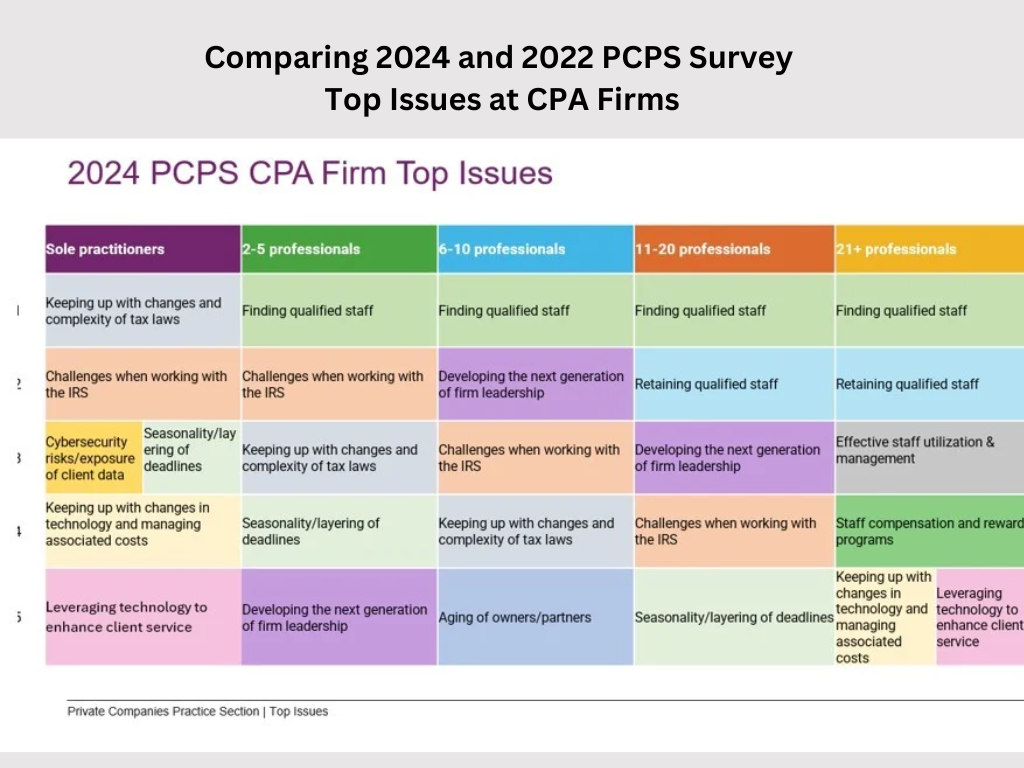
Clearly finding and retaining skilled talent is a big issue. Lack of interest of youth in the profession is fueling the problem.
To attract the young talent, Ernst & Young LLP announced on June 12, 2024 a $1 billion investment to raise entry-level accountant salaries and expand their use of artificial intelligence. This initiative aims to attract more interest in CPA careers.
The firm stated that the increased pay would align young accountants’ compensation with that of other business school graduates. This move is expected to address the wage gap, which has been a factor in the declining interest in the accounting profession.
Also Read – AICPAs NPAG Draft Report to Solve the Talent Shortage
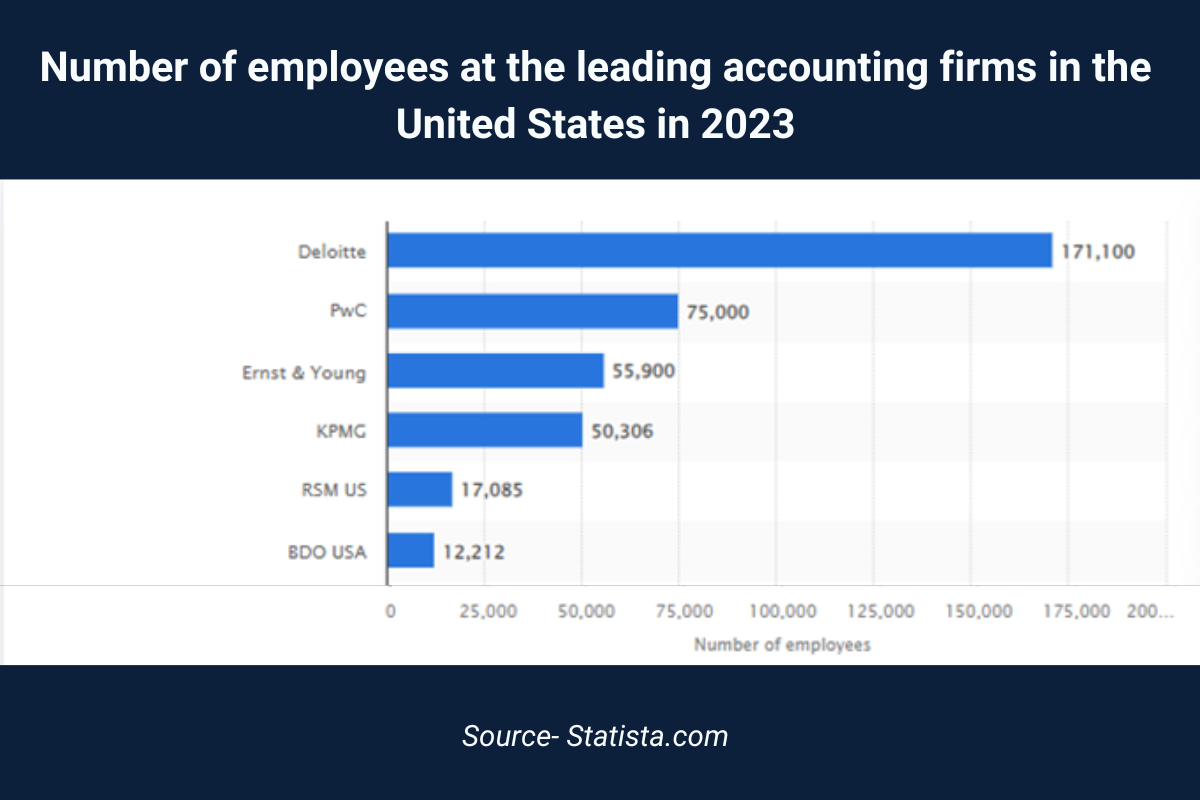
In 2023, the Big Four accounting firms—Deloitte, PwC, EY, and KPMG—continued to dominate the U.S. accounting landscape with the largest workforces. Deloitte led the pack with about 171,000 employees, followed by PwC, EY, and KPMG, with KPMG employing around 50,300 staff.
There’s a noticeable gap between the Big Four and other U.S. accounting firms, with RSM having the next largest workforce, which numbers 17,085 staff members. This stark difference highlights the significant size disparity within the industry, illustrating the concentration of power and resources within the Big Four compared to other firms.
“There’s really two types of firms out there: there’s the firm that’s embracing AI and the future, and then there’s the firm that’ll be out of business within the next—I used to say five years, but things are happening so fast.” – L. Gary Boomer on Accounting Influencers
While AI often captures headlines, it’s important to note that not all automation involves AI. The business landscape of accounting is changing and firms embracing the change will stay in the future of accounting.
If you’re worried about these changes, try viewing them as opportunities rather than obstacles. Firms that ignore these shifts in modern accounting practices are likely to fall behind, while those who embrace them can significantly impact the industry.
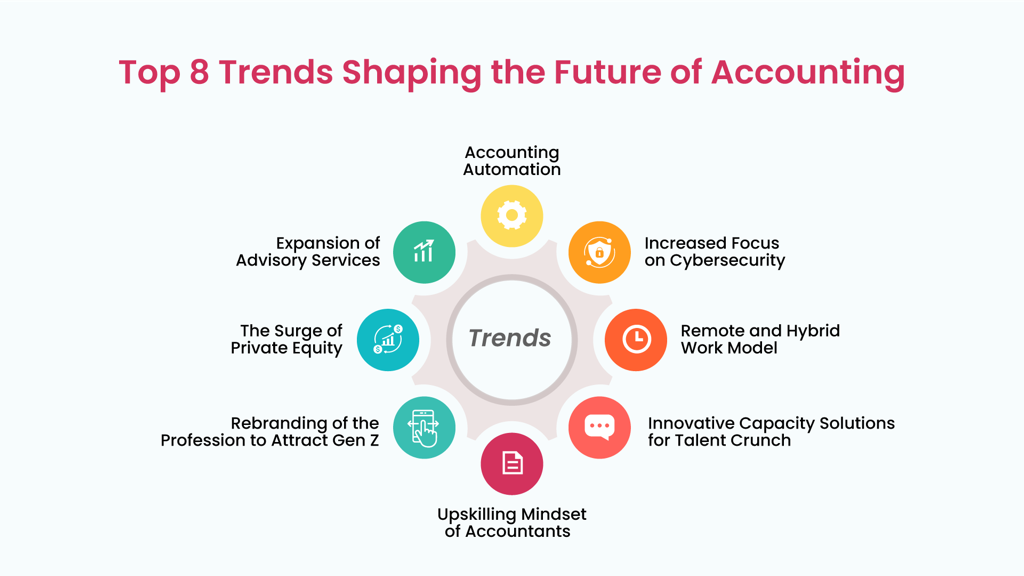
A Sharefile survey revealed that 96% of accountants believe automation is vital for the future of the industry.
This belief comes at a crucial time when many firms are struggling with a nationwide shortage of accountants, increased retirements among baby boomer accountants, and a growing number of CPAs leaving the field. Automation helps these firms handle their expanding workloads efficiently and maintain excellent client experiences, even with fewer human resources.
Many accounting firms already possess technologies that include unused automation capabilities. Simple tools such as templates for workflows, invoicing, or automated notifications can significantly reduce manual tasks. For example, automating a recurring one-minute task across every return or audit process can save substantial amounts of time. The first step is to thoroughly review the technology you already have to ensure you’re leveraging all available automation options.
As AI automates routine tasks, CPAs can focus more on core practices, transitioning from number crunching to providing strategic advice. Here’s why Advisory Services are the future growth area for accounting professionals:
Looking ahead, “Advisory Services” is poised for significant growth over the next decade.
The crucial step for transforming an accounting firm into a genuine business advisory services provider is to shift the mindset and upskill your team. More on that later.
Since 2021, private equity investors have been getting more involved in accounting, planning, and advisory services. They are especially interested in the U.S., where they’re looking at some of the biggest public accounting firms. The accounting field has a lot of small and medium-sized firms, making it an attractive target for private equity firms. These investors see a chance to combine these smaller firms into larger, more competitive ones, unlocking value that was hard to reach before because of their small size.
Last month, PE got its biggest accounting firm yet. Many firms are expected to come under private equity. As per resources, every one of the top 500 firms in the U.S. has talked about private equity involvement. This movement is leading to many mergers as firms upgrade and try to solve bigger challenges with the help of private equity. This shift is changing how the accounting industry looks, making firms stronger and more competitive.
The shortage of new talent in accounting is partly due to how the profession is perceived. In the past, CPAs were seen as smart and trustworthy professionals. Today, however, many people think of accounting as boring, overly conservative, and demanding. In future of accounting, we can see a rebranding of the profession which will change how CPAs are viewed. Accounting as a profession needs rebranding and here’s how it can be done.
The American Institute of Certified Public Accountants (AICPA) has already started planning to attract more people to the profession with its Pipeline Acceleration Plan. The aim of the PCP plan is to attract more young people to the accounting field, preventing the profession from fading away. To make things easier, I’m sharing the details right here.
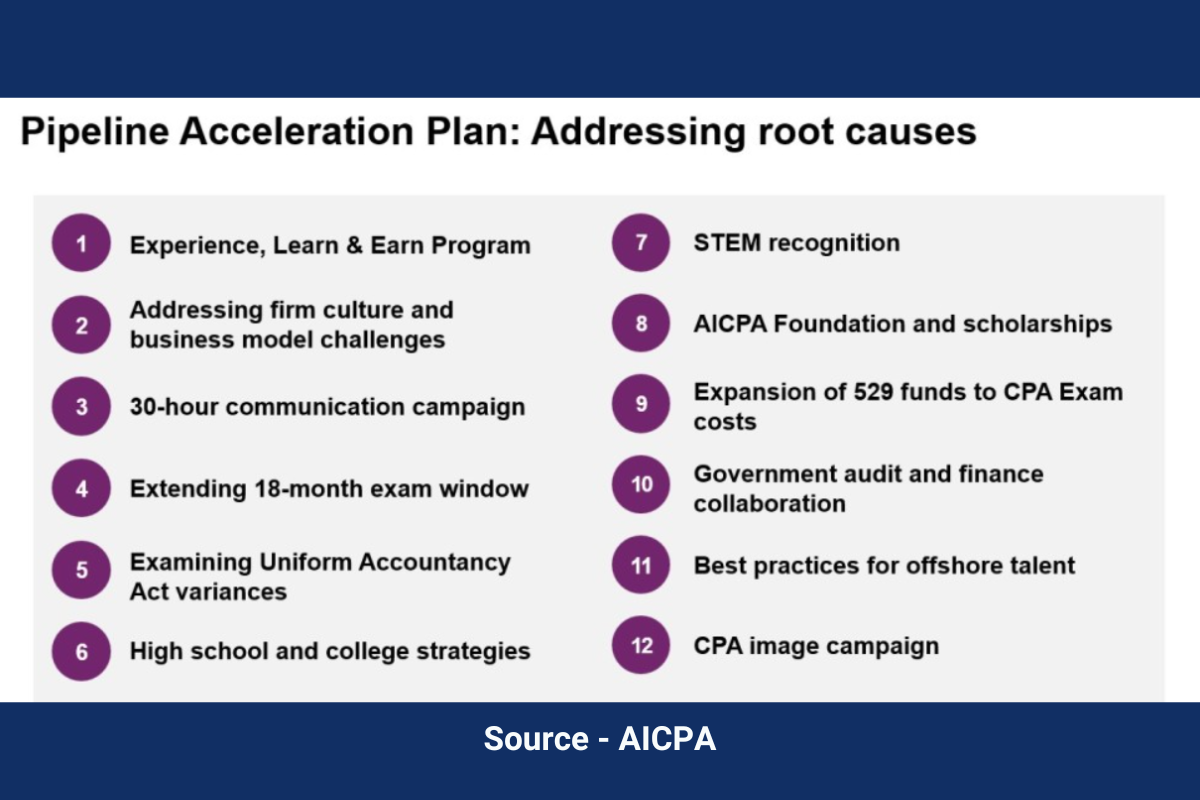
On a personal level, CPAs can showcase the true advantages of their profession, like flexible work hours, financial stability, and the chance to make a real difference in people’s lives.
Cybersecurity continues to be a critical concern in the accounting industry, as the consequences of not keeping up with the latest security measures become increasingly severe. With spear-phishing attacks—where cybercriminals pretend to be company executives to trick employees—accounting for 66% of data breaches, accounting firms are constantly enhancing their security to protect both their clients and staff.
Looking ahead, firms are prioritizing the adoption of advanced security technologies. According to recent surveys, the top technologies firms plan to implement next year include advanced cybersecurity measures (21%), followed by artificial intelligence (14%), workflow software (13%), robotic process automation (10%), and enterprise resource planning systems (ERP) (10%).
Cybersecurity is a major concern for CPAs, keeping many up at night regardless of their work setting. Those in public accounting are especially worried about safeguarding client data, while others are focused on protecting data privacy and defending against cyber threats. It’s clear that preparing for the future involves not just adopting new technologies, but also significantly strengthening cybersecurity measures to address these growing concerns.
The way accountants work has changed a lot, especially since the pandemic. Many employees now prefer not to go back to the office full-time. During the pandemic, we learned that jobs like bookkeeping, accounting, and advisory don’t necessarily need to be done in an office.
A recent survey by Accounting Today shows that about 25% of CPA firms are fully remote and 34% use a hybrid model. Cloud-based accounting software and video conferencing tools make it easier for teams in different places to work together well.
This shows how common remote work has become in accounting. This shift is leading to a more adaptable, scalable, and efficient future of accounting industry.
Capacity is a critical challenge in the accounting industry. Firms often ask themselves if they have enough skilled people and hours to handle their workload or if they are just hoping for the best.
A mismatch between the amount of work, available capacity, and skill level can lead to decreased profitability, lower staff morale, and reduced client satisfaction.
Modern accounting firms will take measures in advance to avoid employee burnout due to capacity issues. There are several ways of doing so with their respective pros and cons.
In the accounting world, staying sharp and up to date is more crucial than ever. Accounting rules and financial regulations are always on the move, and keeping pace ensures that you’re protecting your clients’ interests and keeping your firm in the game, especially when it comes to outsourced services.
If CPAs slack on their learning, they might miss out on fresh opportunities and overlook potential risks that come with market changes.
The future of accounting is all about automation and specialization. Repetitive tasks will be handled by AI and software, freeing accountants to focus on strategic advisory services like financial planning and business consulting.
Accounting firms are also embracing remote work and cybersecurity upgrades to attract talent and protect client data. The profession is revamping its image to appeal to Gen Z and private equity firms are investing in the industry, consolidating smaller firms for growth. To stay relevant, accountants will need to continuously upskill and learn about the latest technologies and regulations.
The future of accounting is clear: automation, specialization, and a focus on strategic services. Is your firm ready?
Credfino partners with modern accounting firms to bridge the talent gap.
Credfino is offshore accounting partner of over 100 CPAs and accounting firms, providing a skilled team of US GAAP-certified accountants for US and Canada accounting firms. We tackle your capacity issues, streamline workflows, and modernize your practice, enhancing your firm’s profitability.
Stop struggling with repetitive tasks and talent shortages. Let Credfino empower your team to focus on what matters most – strategic client service.
Contact Credfino today and unlock the future of accounting for your firm!

Tiered pricing gives accounting firms a flexible, confident way to price their services and raise fees without fear. Template included.

Offshore accounting is here to stay. The question is how it is affecting the accounting industry. This is a debate that matters.

No accountant wants to train AI and ML models. Yet, AI in accounting can’t be ignored. Learn how to use accounting AI without being technical.